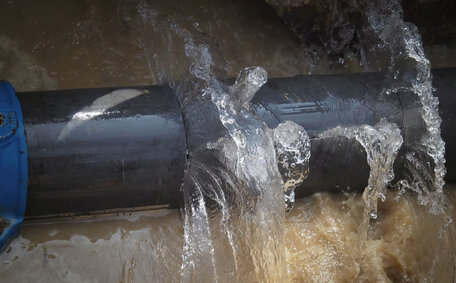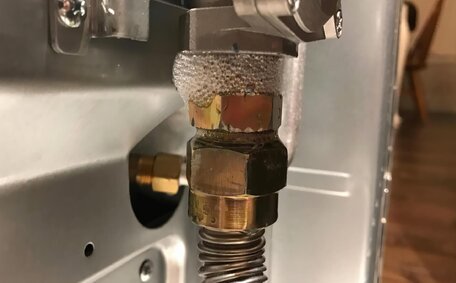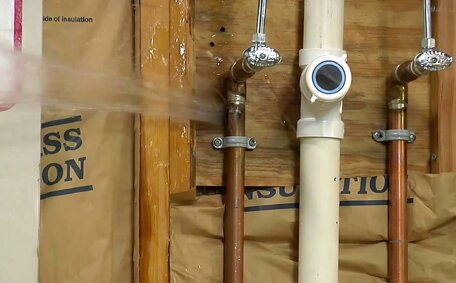Introduction to Insulating Hot Water Systems
Accessible hot water for daily activities is essential in Randwick homes and businesses. They provide constant access to hot water for bathing, cleaning, cooking, and more. However, without proper insulation, these systems can lose a substantial amount of heat during storage and distribution. Accessible hot water for daily activities is essential in Randwick homes and businesses.
Effective insulation substantially enhances the efficiency of your hot water system.
Materials like fibreglass wraps, foam sleeves, and pipe lagging act as a barrier to prevent heat loss as water travels from the heater through the pipes to your taps. Augmenting partially insulated modern systems with additional materials could save households a significant amount on annual energy costs.
At Randwick Plumbing, we offer complete hot water system insulation as part of our suite of leading plumbing services. Contact us today to learn about insulation solutions tailored to your unique needs.
Insulating your system conserves both energy and water by reducing the wait time for hot water flow and preventing waste.
How Insulation Minimizes Heat Loss from Hot Water Systems
Insulation plays a critical role in improving the energy efficiency of plumbing systems. It works by trapping air, a poor conductor of heat, in small pockets within its material. This air acts as a barrier, preventing the transfer of heat from the water within the pipes and tanks to the surrounding environment.
When it comes to hot water systems, insulation is a game-changer. Insulating hot water pipes can raise the water temperature by up to 4°C. This might not seem like much, but it can lead to significant energy savings. This reduction in energy consumption translates into lower utility bills and a smaller carbon footprint.
Better insulation means less work for your water heater, as it maintains temperatures with reduced effort.
Randwick’s climate makes energy efficiency not just desirable but essential. With hot, humid summers and mild winters, the demand for hot water remains consistent throughout the year.
Insulating your hot water system actively contributes to energy and water conservation, promoting a sustainable future in Randwick and beyond.
The Australian Government’s YourHome website highlights that insulating hot water pipes can result in savings of up to $20 per year, and tank insulation, up to $80 annually. These savings add up over time, making insulation a worthwhile investment for any homeowner or business.
Recommended Insulation Materials for Hot Water Pipes and Tanks
When it comes to insulating your hot water system, you have several effective options to choose from. The preferred insulation materials in Randwick for both residential and commercial use include:
- Pipe lagging - Typically made of foam, rubber, or polyethylene, pipe lagging wraps around hot water pipes, preventing surface heat loss. It’s easy to install, durable, and suitable for straight pipe runs.
- Glass wool batts - These fibreglass batts wrap around hot water tanks and pipes, trapping air pockets for excellent insulation. Though they require more labour to install, glass wool batts don’t burn or fuel fires.
- Polyethylene foam sleeves - These preformed foam sleeves slip over pipes and tanks, conforming to their shape for a snug fit. The closed-cell foam structure resists moisture absorption in damp areas.
- Vinyl cladding - Vinyl cladding offers a weatherproof and sun-resistant covering for external hot water tanks.
Our expert plumbers can recommend the best insulation materials and their correct thickness for your specific needs. Our professional installation service guarantees optimal insulation efficiency for your hot water system.
Take control over your energy usage and water conservation. Insulate your hot water system today for lower utility bills and more sustainable living in Randwick.
Installing Insulation on Your Hot Water Pipes and Tank
Upgrading your existing hot water system with additional insulation is a straightforward DIY project for handy homeowners. Here’s a step-by-step guide:
- Check the manufacturer’s instructions for your hot water system to identify recommendations for suitable insulation materials and installation guidelines.
- For hot water pipes, measure the diameter and length of pipework needing insulation. Cut an appropriate length of pre-slit foam tubing to wrap around the pipes, securing it with tape.
- Ensure pipe lagging extends over all joints and connections to avoid heat escaping. Wrap insulation in the direction of water flow for optimal results.
- For insulating tanks, purchase a purpose-designed water heater insulation blanket to wrap around the exterior of the tank. Secure it following the product instructions.
- Ensure critical components like the thermostat and pressure relief valve of the water heater remain uncovered during the insulation process.
- Check insulation performance by running hot water and verifying increased output temperature. Add additional insulation layers if required.
Adherence to the Building Code of Australia’s regulations ensures optimal energy efficiency from your insulation. Consulting Randwick Plumbing’s licenced technicians is advisable if your DIY insulation project seems unfeasible.
Regulate heat dissipation from your hot water system with effective insulation. With the right materials and straightforward installation, you can save energy and money while conserving water - a win for your hip pocket and the environment!
Safety Considerations When Insulating Hot Water Systems
While insulation brings numerous benefits, installing it on your hot water system demands careful attention to safety. Failure to follow proper precautions could compromise the safe operation of your appliance.
Post-insulation, ensure gas water heaters have proper clearances around flues and exhaust vents. Blocking these openings risks dangerous gas buildup or combustion by-product leakage into living spaces.
Check manufacturer guidelines to ensure insulation materials meet fire safety standards. Placement of flammable products near ignition sources could pose a significant fire hazard.
Avoid wrapping insulation around pressure relief valves, thermostats, cold water inlets and hot water outlets. Covering these components interferes with monitoring water temperature and managing excess pressure.
During pipe lagging, avoid insulating flexible connectors or joints in a manner that restricts movement or access to leak detection panels.
For safety concerns related to insulating your hot water system, it’s best to consult licensed professionals like Randwick Plumbing. Our experts can advise on compliance with Australian Standards and Building Codes, giving you the peace of mind you deserve.
While DIY insulation projects promise rewards, don’t compromise safety. With sound guidance and quality materials, you can save energy and money without unwanted risks.
The Cost Savings from Adding Insulation
Installing insulation around your hot water system can lead to significant cost savings for Randwick households and businesses. As mentioned earlier, insulation reduces heat loss from hot water pipes and tanks by up to 4°C. Minimizing energy waste, your water heater’s workload is reduced to maintain the desired water temperature.
In Randwick’s subtropical climate, the demand for hot water is constant throughout the year. The unending demand means your system is perpetually in use. Insulating the system reduces its workload, translating into lower energy bills.
According to the Australian Government, insulating your hot water pipes can save over $20 annually, while insulating your hot water tank can save more than $80 each year. A typical household can expect combined annual savings exceeding $100 when both pipe and tank insulation are installed.
The upfront investment in insulation materials and professional installation pays dividends through these ongoing savings. The breakeven point where the project cost is repaid depends on local energy prices. Still, within 1-3 years, the upgrade usually pays for itself.
By reducing heat loss, insulation lowers your hot water system’s energy use, reducing associated carbon emissions. This aligns with the Randwick City Council’s vision for sustainability.
Contact Randwick Plumbing today to learn how insulating your hot water system can benefit you financially while conserving precious resources. Our team of licenced technicians can advise on insulation solutions tailored to your needs.
Hiring a Professional vs. DIY Insulation Installation
When it comes to insulating your hot water system, you have a choice between DIY installation or hiring a professional plumbing service like Randwick Plumbing. While a handy homeowner can certainly complete basic insulation jobs themselves, For intricate projects, we advocate the use of expert installation services.
The fully-licenced technicians at Randwick Plumbing offer numerous advantages over tackling insulation solo. Our specialists’ expertise ensures that insulation work is done properly, safely, and in compliance on the first attempt. We conduct on-site assessments to recommend tailored solutions for your unique needs and architecturally advise on required insulation specifications.
With extensive experience insulating the full gamut of hot water systems in Randwick homes and businesses, our technicians work swiftly while adhering to industry best practises.
We supply all necessary insulation materials shaped to your pipework and tanks for streamlined installation. Randwick Plumbing manages the project from start to finish, saving you time and offering peace of mind through expert service.
For tricky locations like roof spaces above ceilings, crawl spaces under floors, or difficult access points common in many Randwick properties, professional installation is advisable. Our team has the training, equipment and capabilities to seamlessly complete insulation upgrades in confined spaces the typical DIYer may struggle to manage.
Randwick Plumbing’s service extends to a complete post-installation clean-up, sparing you any disposal hassles associated with DIY waste. For uncomplicated hot water pipe lagging jobs, homeowners with the right guidance can successfully undertake self-installation.
Contact our team today to discuss your situation. We’ll assess your hot water system’s insulation needs and advise if professional installation is recommended over DIY for optimal results.






